Not-the-Notes Blog 1 March 2017
 Something happened this evening preventing the live broadcast of Lowell's School Committee Meeting for March 1. Until the taped meeting materializes, there won't be any notes about what transpired; however, this doesn't mean there isn't anything to think about.Found in the Permissions to Enter, are 4 requests totaling $882,470. All of these requests are expenditures from the Special Education Tuition account and are for Out of District (OOD) costs to agencies servicing student Individual Education Plans (IEPs).When the services necessary to provide a free and adequate education for a student cannot be met within the local school district, they must be contracted out. It is the legal responsibility of the school district to ensure that all students have access to the educational services that they need, and if the services cannot be provided from within, the district must provide those services through an agency that can. No one gets turned away because educational needs are challenging.All of the recent talk about vouchers and funding and such got me thinking about this. With the implementation of a voucher, or "school choice" program, would there be a requirement for all school settings (public, charter, private/religious) to equitably accept students regardless of special education need?Here's how that is playing out right now in Lowell. Students receiving services are counted as Students with Disabilities on DESE's student profile for Lowell Public School District. This number is reported at 16% (data from 2016-17). There are several educational environments for special education service delivery as shown in the following graphic. This data, the most recent on DESE's Lowell Public Schools profile site, is from 2015 and is the most recent reported on DESE's site. The data includes children aged 6-21 with IEPs.
Something happened this evening preventing the live broadcast of Lowell's School Committee Meeting for March 1. Until the taped meeting materializes, there won't be any notes about what transpired; however, this doesn't mean there isn't anything to think about.Found in the Permissions to Enter, are 4 requests totaling $882,470. All of these requests are expenditures from the Special Education Tuition account and are for Out of District (OOD) costs to agencies servicing student Individual Education Plans (IEPs).When the services necessary to provide a free and adequate education for a student cannot be met within the local school district, they must be contracted out. It is the legal responsibility of the school district to ensure that all students have access to the educational services that they need, and if the services cannot be provided from within, the district must provide those services through an agency that can. No one gets turned away because educational needs are challenging.All of the recent talk about vouchers and funding and such got me thinking about this. With the implementation of a voucher, or "school choice" program, would there be a requirement for all school settings (public, charter, private/religious) to equitably accept students regardless of special education need?Here's how that is playing out right now in Lowell. Students receiving services are counted as Students with Disabilities on DESE's student profile for Lowell Public School District. This number is reported at 16% (data from 2016-17). There are several educational environments for special education service delivery as shown in the following graphic. This data, the most recent on DESE's Lowell Public Schools profile site, is from 2015 and is the most recent reported on DESE's site. The data includes children aged 6-21 with IEPs. In thinking about what might happen should a voucher program become reality, I took a look at what currently occurs with traditional public schools and charter schools. Charter Schools should reflect a similar demographic to the local public school district. In principle, sometimes charter schools do, but sometimes they do not.In Lowell, the Community Charter School reports 15.5% of enrolled students have disabilities, yet the Collegiate Charter School reports 11.6% (both 2016-17 data, same timeframe as reported for LPSD above).Using the most recent data available for educational environments (2015), however, reveals that sometimes digging deeper into data can be interesting. Take a look at the data specifying educational environment, especially those environments that require specialized intervention and services, such as Out of District placements.
In thinking about what might happen should a voucher program become reality, I took a look at what currently occurs with traditional public schools and charter schools. Charter Schools should reflect a similar demographic to the local public school district. In principle, sometimes charter schools do, but sometimes they do not.In Lowell, the Community Charter School reports 15.5% of enrolled students have disabilities, yet the Collegiate Charter School reports 11.6% (both 2016-17 data, same timeframe as reported for LPSD above).Using the most recent data available for educational environments (2015), however, reveals that sometimes digging deeper into data can be interesting. Take a look at the data specifying educational environment, especially those environments that require specialized intervention and services, such as Out of District placements.
 Neither of the two charter schools have special education students needing either substantially separate services or separate schools/facilities/homebound-hospital placements?So as the proponents of a voucher, or "choice" system continue to push their agenda forward, I'll be watching to see if those hollering about choice for all families and students really mean all. Or do they mean just those students with less challenging needs.
Neither of the two charter schools have special education students needing either substantially separate services or separate schools/facilities/homebound-hospital placements?So as the proponents of a voucher, or "choice" system continue to push their agenda forward, I'll be watching to see if those hollering about choice for all families and students really mean all. Or do they mean just those students with less challenging needs.
 If you don't know about H.R. 610, here is a link to the text and the bill's progress. I urge you to follow it and, if you feel strongly about it, respond to it. While my Congressional Representative is not a member of the House Committee currently reviewing this legislation, I want her to know exactly how this bill will impact our Local Education Agency (LEA).A tacked on provision in this legislation can be found at the very end: dismantling (my word) of the No Hungry Kids Act. Under the No Hungry Kids Act, fruit and vegetable offerings increased and low- and non-fat milk was offered. Those requirements would be removed. Additionally, the proposal in HR610 would eliminate monitoring school lunch/breakfast choices for sodium, trans fats and saturated fats.Why does this matter? Childhood and adult obesity continues to be a factor in health and well-being. In school food programs students are exposed to healthier eating options. If you are unfamiliar with the effects of less healthy food choices, read
If you don't know about H.R. 610, here is a link to the text and the bill's progress. I urge you to follow it and, if you feel strongly about it, respond to it. While my Congressional Representative is not a member of the House Committee currently reviewing this legislation, I want her to know exactly how this bill will impact our Local Education Agency (LEA).A tacked on provision in this legislation can be found at the very end: dismantling (my word) of the No Hungry Kids Act. Under the No Hungry Kids Act, fruit and vegetable offerings increased and low- and non-fat milk was offered. Those requirements would be removed. Additionally, the proposal in HR610 would eliminate monitoring school lunch/breakfast choices for sodium, trans fats and saturated fats.Why does this matter? Childhood and adult obesity continues to be a factor in health and well-being. In school food programs students are exposed to healthier eating options. If you are unfamiliar with the effects of less healthy food choices, read  Somewhere back in my past, someone in my family - possibly my Grandmother - showed me how to knit and purl. And I'm pretty good with that as far as it goes. For the rest, I turn to Youtube videos. My grip on knitting skills is pretty tenuous, but I can make a mean scarf, a basic hat, and once I even made a pair of mittens.So when the Womens' march linked to published directions for signature Pussy Hats, well the pattern seemed like something I could handle, so I decided to give it a try. It would have been a lot easier had I not waited until the last possible moment to try to find pink yarn. I've learned that using a different yarn weight is not an easy change to make. However, I got some stellar advice from a local yarn shop, an easier pattern (!), and a set of circular needles. Love those circular needles.Working with the much more bulky yarn that I was able to procure, produced a first hat that could have fit two heads. Despite having many students look at me over my career as if I
Somewhere back in my past, someone in my family - possibly my Grandmother - showed me how to knit and purl. And I'm pretty good with that as far as it goes. For the rest, I turn to Youtube videos. My grip on knitting skills is pretty tenuous, but I can make a mean scarf, a basic hat, and once I even made a pair of mittens.So when the Womens' march linked to published directions for signature Pussy Hats, well the pattern seemed like something I could handle, so I decided to give it a try. It would have been a lot easier had I not waited until the last possible moment to try to find pink yarn. I've learned that using a different yarn weight is not an easy change to make. However, I got some stellar advice from a local yarn shop, an easier pattern (!), and a set of circular needles. Love those circular needles.Working with the much more bulky yarn that I was able to procure, produced a first hat that could have fit two heads. Despite having many students look at me over my career as if I  Huffington Post published a blog entry by Gay Groover Christmus recently that resonated with me as a retired educator who taught pre-
Huffington Post published a blog entry by Gay Groover Christmus recently that resonated with me as a retired educator who taught pre-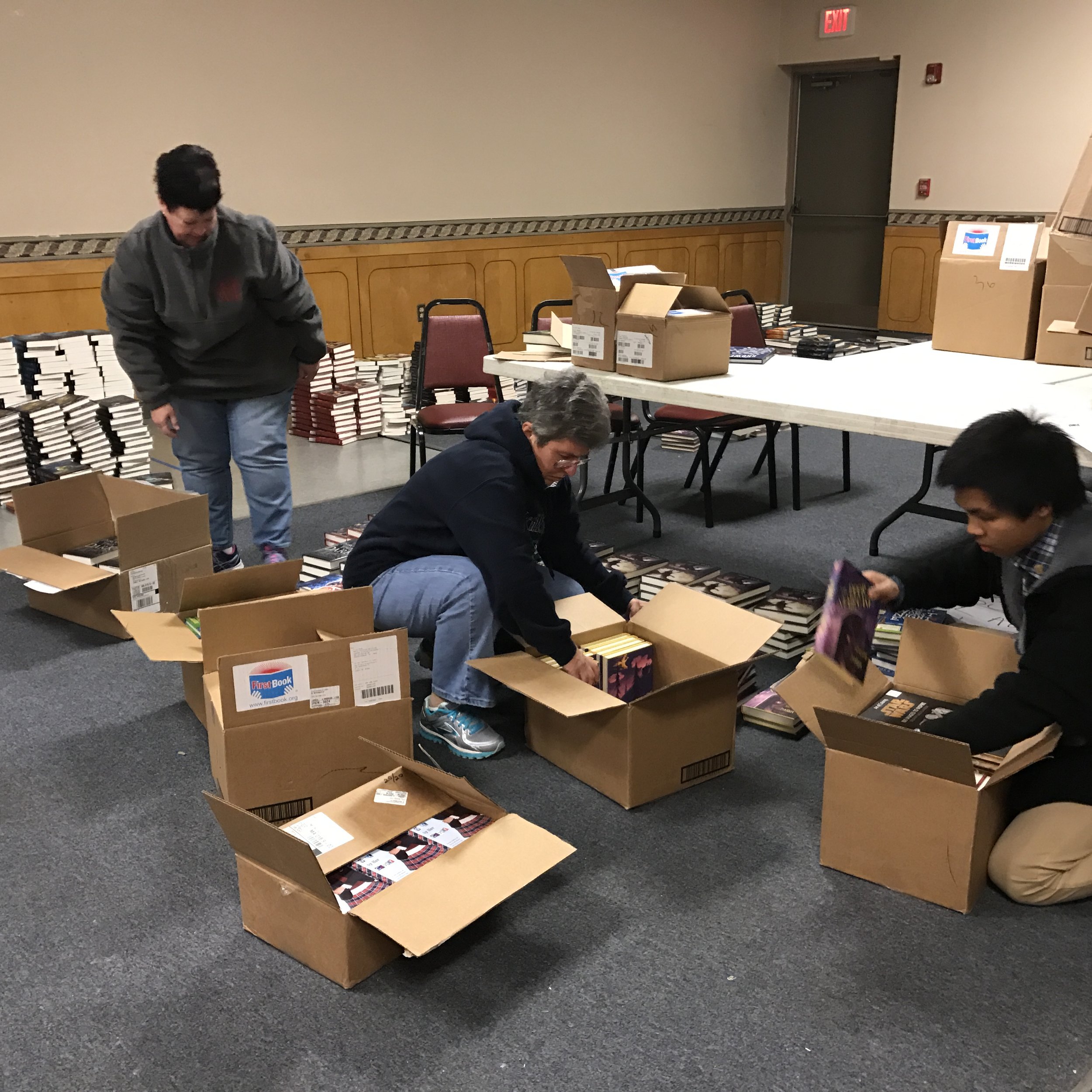 Within the past week, our United Teachers of Lowell organized and hosted a FirstBook "Books on Wheels" event where over 2000 students and their families received free books. As we sorted and organized 40,000+ books, we heard about a fire in a near-by Lawrence school, the Bruce School, and the impact of the loss on students, teachers and classrooms. What could we do to help? Hearing that the destruction impacted 7th and 8th grade classrooms, we set aside over 500 books from our event to donate to the Bruce School. The books were selected by Lowell middle-school teachers working to unpack pallets, boxed up by students and educators who were volunteering at our event, and picked up on Saturday - our event's distribution day - by the Principal of the Bruce School and the Lawrence Schools COO. One would think this would be a feel-good moment. Not so fast.We sent a press release
Within the past week, our United Teachers of Lowell organized and hosted a FirstBook "Books on Wheels" event where over 2000 students and their families received free books. As we sorted and organized 40,000+ books, we heard about a fire in a near-by Lawrence school, the Bruce School, and the impact of the loss on students, teachers and classrooms. What could we do to help? Hearing that the destruction impacted 7th and 8th grade classrooms, we set aside over 500 books from our event to donate to the Bruce School. The books were selected by Lowell middle-school teachers working to unpack pallets, boxed up by students and educators who were volunteering at our event, and picked up on Saturday - our event's distribution day - by the Principal of the Bruce School and the Lawrence Schools COO. One would think this would be a feel-good moment. Not so fast.We sent a press release  With the election about 8 weeks away, there's a lot of available "information", and I use that term lightly, about Ballot Question 2 (
With the election about 8 weeks away, there's a lot of available "information", and I use that term lightly, about Ballot Question 2 ( It is back-to-school time here in the City in which I taught for nearly 30 years. You can sense the anticipation in the breezes that flow down the Merrimack. There is an almost unidentifiable change to the air. We are changing seasons; we are changing routines.I loved the first day of school when I was teaching. Make no mistake about it, those first days - and oftentimes weeks - are exhausting as teachers and their new students work to find common ground and to build a community. The first day, the day when everyone wears a little vulnerability in anticipation of new things, the first day is special. And for every teacher who starts rebuilding a new community of learners today, I wish you the best.My mind floods with the memories of some of those wonderfully special students who made the 30 first days that I was privileged to be part of special. So many unique personalities! You kids have enriched my life in ways I could never have imagined.In 1990, I was returning to the classroom after a summer of health crises. I remember the exhaustion that year was not from teaching, but from treatments. Dragging my sorry self into a classroom filled with second graders was not only teacher-exhausting, it was physically and mentally exhausting. Yet every single morning, one of my bubbly, precious second graders, Anita, would throw her arms into the air and tell me "Mrs. Bisson, you look mahvelous today!" Now I know the reality was, I didn't look even close to passable most days. Some mornings, Anita's greeting was the one thing that kept me moving forward. A few years later, this special girl lost her own battle with cancer - and took a piece of my heart with her to heaven.All of "my" kids whether you are grown with your own children or still in the middle of schooling, I am grateful to every single one of you. You challenged me to do better, to figure it out, and yet, every day you taught me something about making the most of our time here in our classroom community and on this earth. All those times when you thought I was teaching you, you were really teaching me.Students are meeting their teachers once again today. May you all have a year filled with precious moments and memory-making. Cherish each moment as you build a lifetime of memories.
It is back-to-school time here in the City in which I taught for nearly 30 years. You can sense the anticipation in the breezes that flow down the Merrimack. There is an almost unidentifiable change to the air. We are changing seasons; we are changing routines.I loved the first day of school when I was teaching. Make no mistake about it, those first days - and oftentimes weeks - are exhausting as teachers and their new students work to find common ground and to build a community. The first day, the day when everyone wears a little vulnerability in anticipation of new things, the first day is special. And for every teacher who starts rebuilding a new community of learners today, I wish you the best.My mind floods with the memories of some of those wonderfully special students who made the 30 first days that I was privileged to be part of special. So many unique personalities! You kids have enriched my life in ways I could never have imagined.In 1990, I was returning to the classroom after a summer of health crises. I remember the exhaustion that year was not from teaching, but from treatments. Dragging my sorry self into a classroom filled with second graders was not only teacher-exhausting, it was physically and mentally exhausting. Yet every single morning, one of my bubbly, precious second graders, Anita, would throw her arms into the air and tell me "Mrs. Bisson, you look mahvelous today!" Now I know the reality was, I didn't look even close to passable most days. Some mornings, Anita's greeting was the one thing that kept me moving forward. A few years later, this special girl lost her own battle with cancer - and took a piece of my heart with her to heaven.All of "my" kids whether you are grown with your own children or still in the middle of schooling, I am grateful to every single one of you. You challenged me to do better, to figure it out, and yet, every day you taught me something about making the most of our time here in our classroom community and on this earth. All those times when you thought I was teaching you, you were really teaching me.Students are meeting their teachers once again today. May you all have a year filled with precious moments and memory-making. Cherish each moment as you build a lifetime of memories.
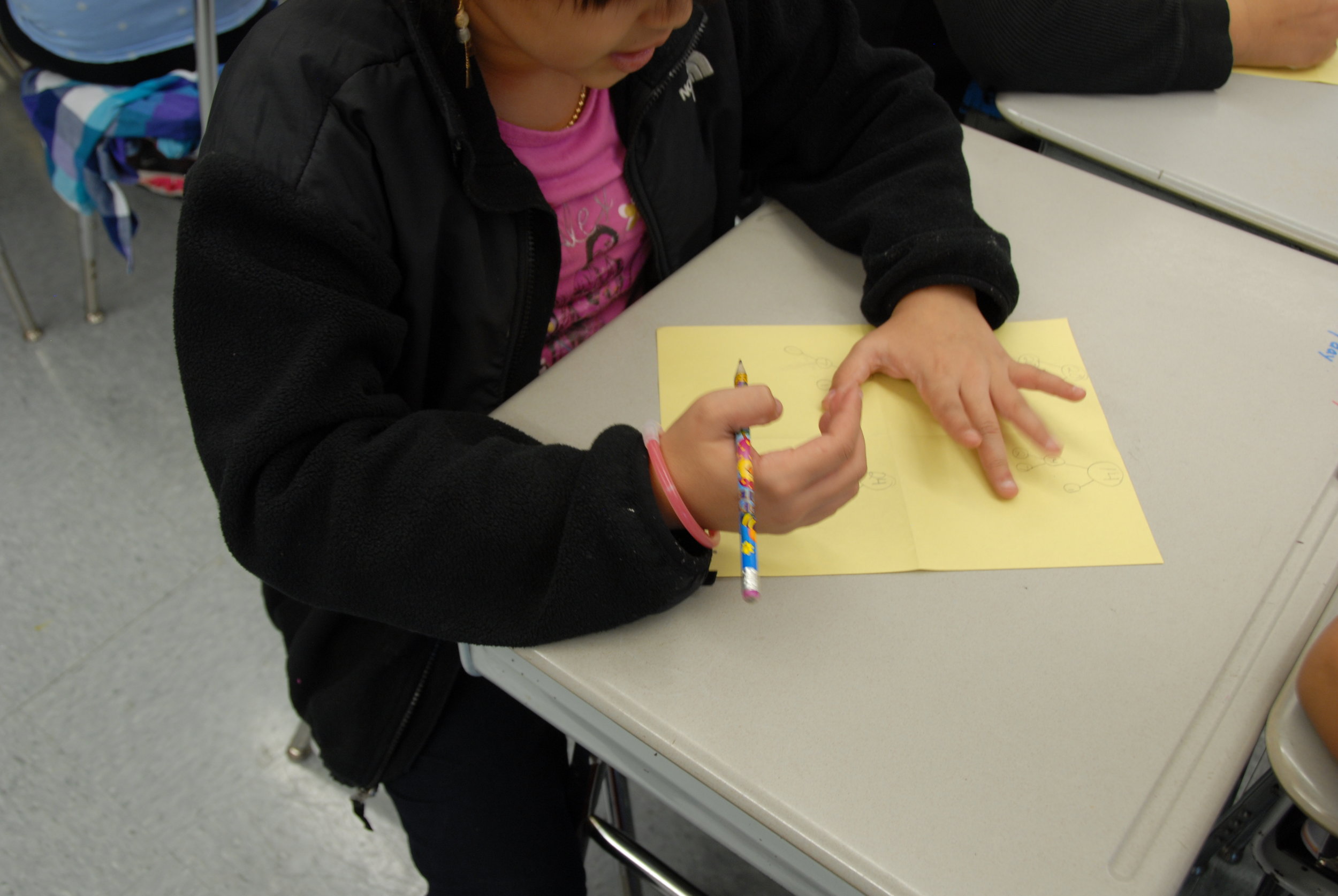 Sometimes what appears to be an inventive solution to a time-consuming problem slips into place without the thorough scrutiny that it needs. Enter Exhibit 1:
Sometimes what appears to be an inventive solution to a time-consuming problem slips into place without the thorough scrutiny that it needs. Enter Exhibit 1: 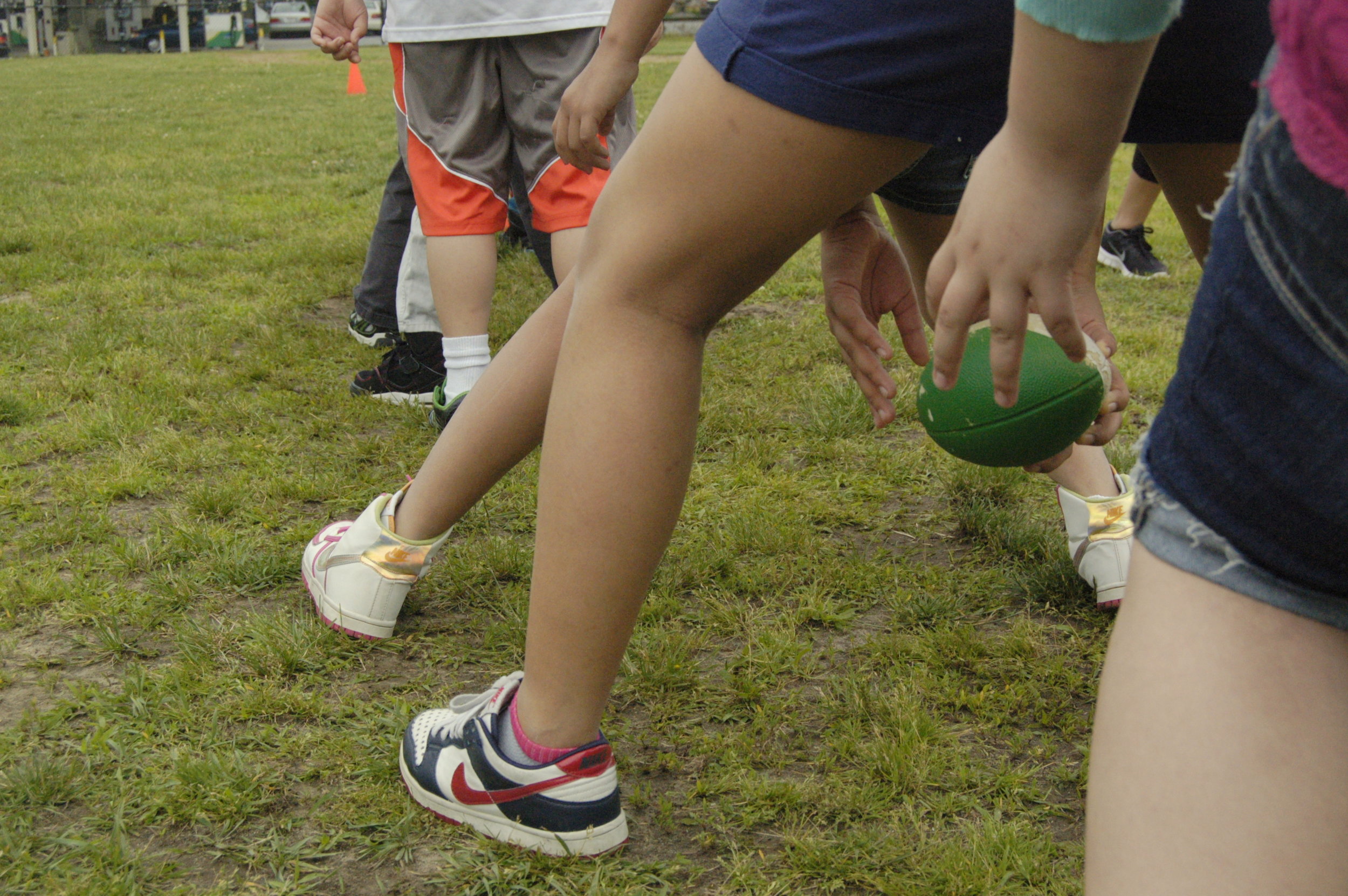 Put yourself back in elementary school and imagine your reaction to a classmate calling you a name or hurting your feelings through action or word. Would you speak up or would you allow that hurt to fester and grow into something more significant? Would you feel listened to? And if you caused the hurt would you recognize it as such?In our adult conversation, do we listen - really listen - to each other even when the conversation is difficult? I am not so sure any more. Maybe what we adults could use is a refresher course in conflict resolution.Ruth Sidney Charmey, author of
Put yourself back in elementary school and imagine your reaction to a classmate calling you a name or hurting your feelings through action or word. Would you speak up or would you allow that hurt to fester and grow into something more significant? Would you feel listened to? And if you caused the hurt would you recognize it as such?In our adult conversation, do we listen - really listen - to each other even when the conversation is difficult? I am not so sure any more. Maybe what we adults could use is a refresher course in conflict resolution.Ruth Sidney Charmey, author of  Recently, the
Recently, the 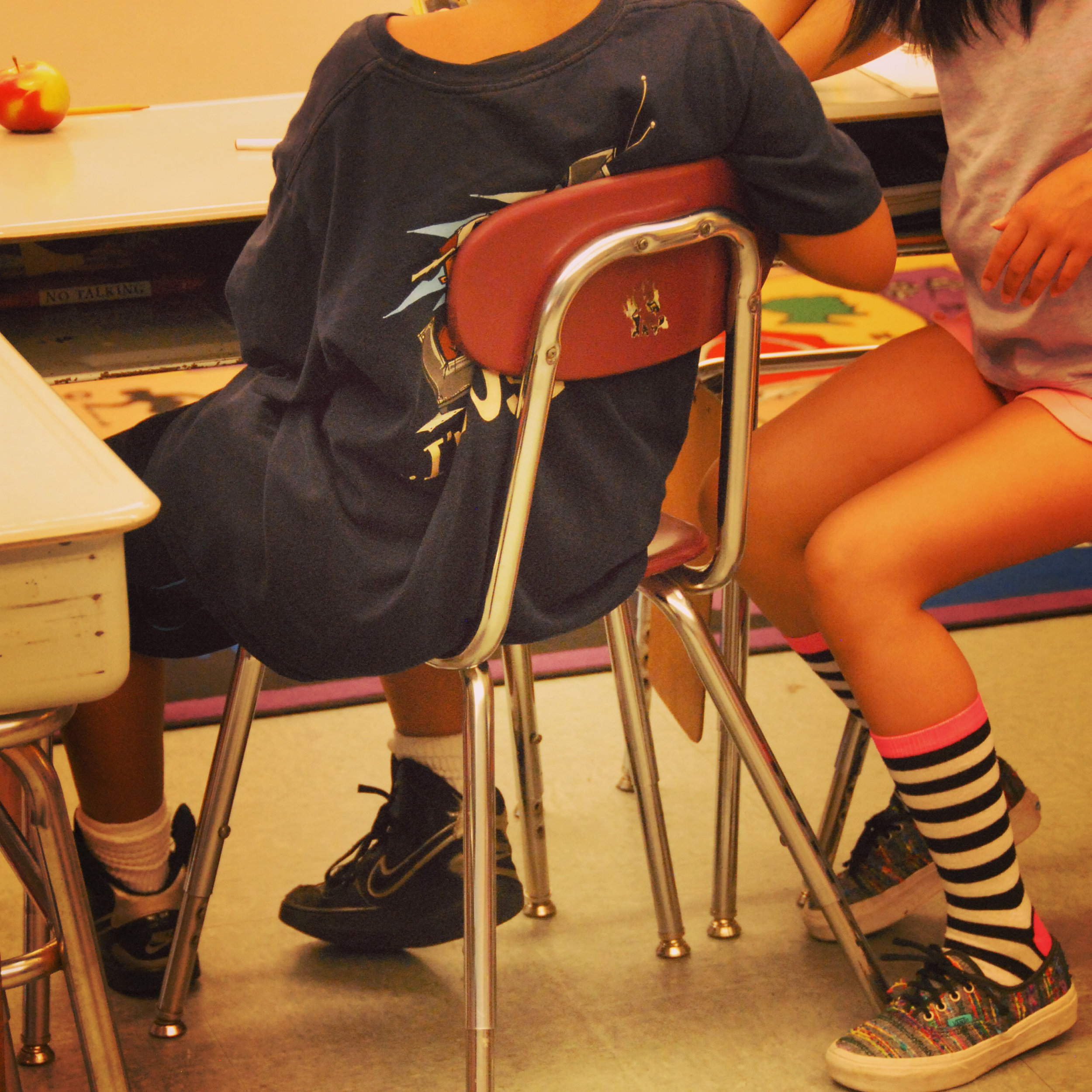 The New York Times carried an interesting story about Kansas conservatives and the effort to demonize education even further through
The New York Times carried an interesting story about Kansas conservatives and the effort to demonize education even further through  Baton Rouge. Minneapolis. Dallas.If there is any doubt that this is a messed up world, the last 2 days should clear that up. It is undeniable that we live at a crossroads of how we, all of us, mean to treat each other.My childhood straddled the Civil Rights movement. In 1963 when Martin Luther King stood on the steps of the of the Lincoln Memorial, I was 11 years old. That speech, made 53 years ago in August, spoke of the "promissory note to which every American was to fall heir". I reread
Baton Rouge. Minneapolis. Dallas.If there is any doubt that this is a messed up world, the last 2 days should clear that up. It is undeniable that we live at a crossroads of how we, all of us, mean to treat each other.My childhood straddled the Civil Rights movement. In 1963 when Martin Luther King stood on the steps of the of the Lincoln Memorial, I was 11 years old. That speech, made 53 years ago in August, spoke of the "promissory note to which every American was to fall heir". I reread 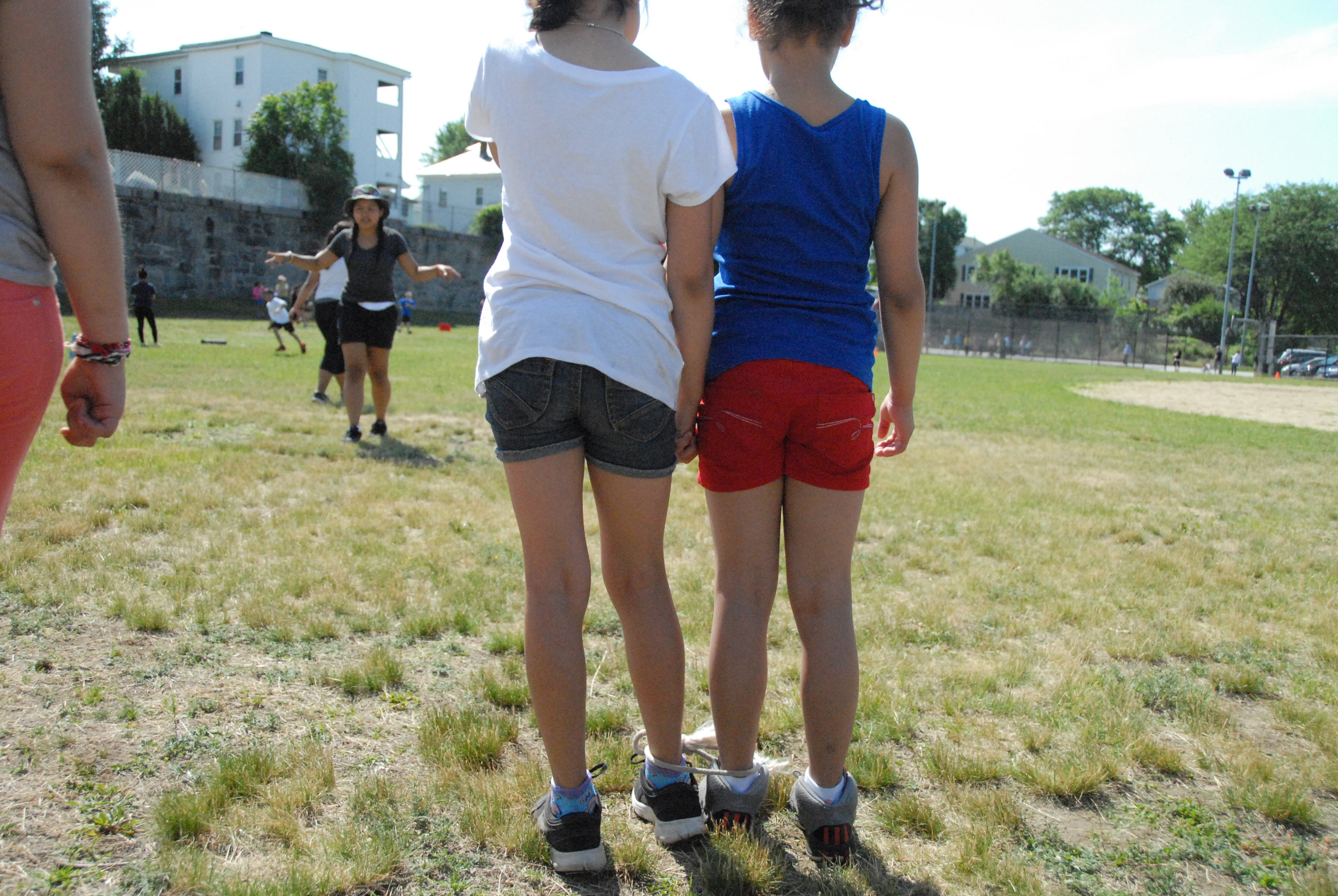 I never worried about what fate my father or brother or husband or son might meet with doing ordinary errands. People don't, as a rule, lock their car doors when I walk nearby, nor does the conversation stop when I enter a store. So as far as understanding what it means to beof color and living in the United States, I cannot possibly understand the depth of hurt and resentment and anger. But I can do something.
I never worried about what fate my father or brother or husband or son might meet with doing ordinary errands. People don't, as a rule, lock their car doors when I walk nearby, nor does the conversation stop when I enter a store. So as far as understanding what it means to beof color and living in the United States, I cannot possibly understand the depth of hurt and resentment and anger. But I can do something.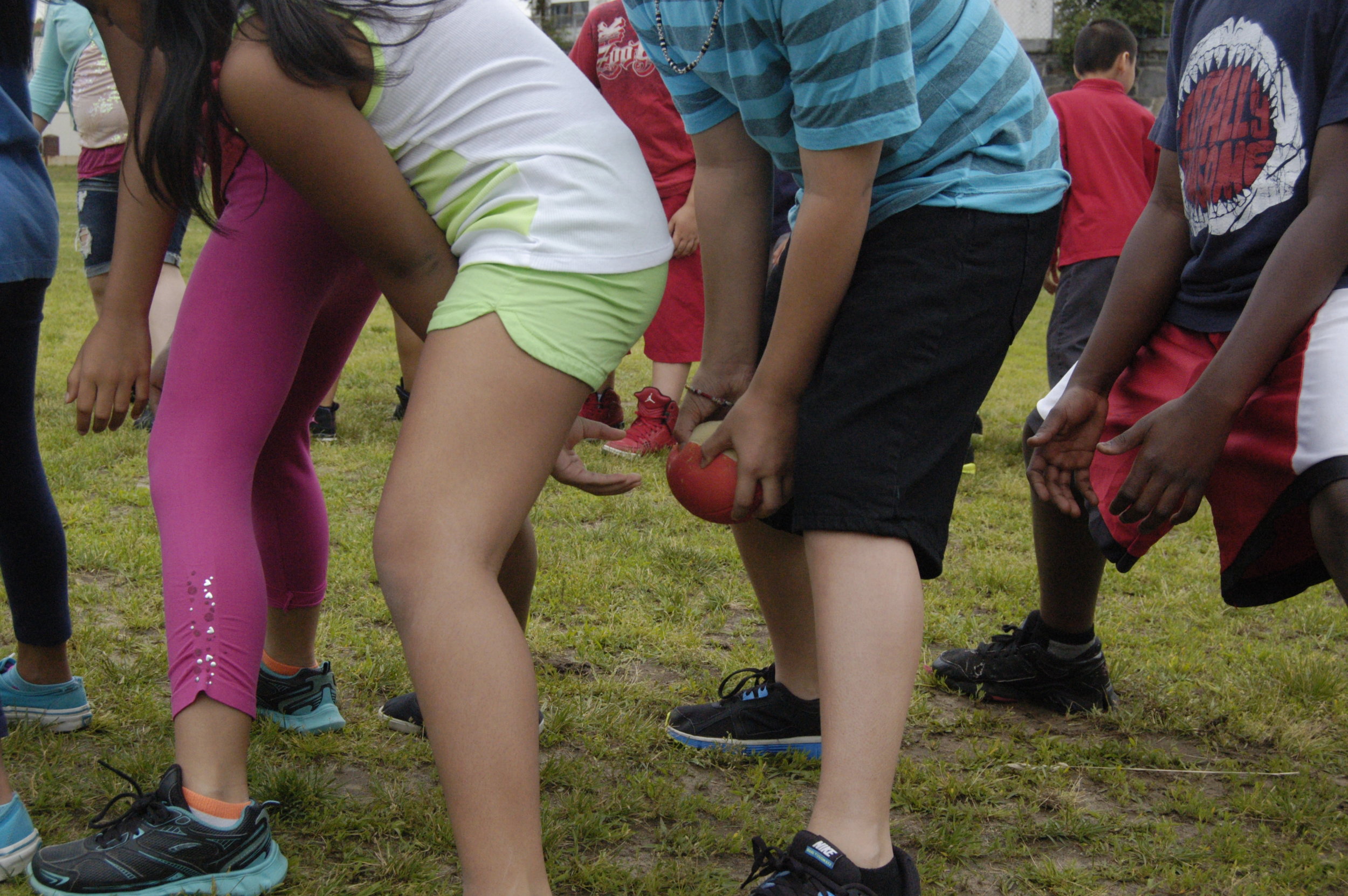 Whether someone looks the same or different from me, I can look that person in the eyeand smile. I can nod and say hello. I can be more mindful of the subtle speech that telegraphs cultural and racial differences and take care to object to generalities. I can stand strongly against those politicians who would use the language of intolerance to garner votes.We are at a clear crossroads and it is time for some introspection into the kind of world we want to live in.
Whether someone looks the same or different from me, I can look that person in the eyeand smile. I can nod and say hello. I can be more mindful of the subtle speech that telegraphs cultural and racial differences and take care to object to generalities. I can stand strongly against those politicians who would use the language of intolerance to garner votes.We are at a clear crossroads and it is time for some introspection into the kind of world we want to live in.  Yesterday's New York Times carried the story of America's failure to educate students.
Yesterday's New York Times carried the story of America's failure to educate students.  In theory, I enjoy the idea of travel. In reality, I miss my "stuff". And knowing precisely where everything is.There is nothing like 24 hours in airports and planes and a 6-hour time zone change to turn even the most Pollyanna-ish of us into raging maniacs of intolerance for humanity. And that is especially true if you have to connect to anyplace through LAX.
In theory, I enjoy the idea of travel. In reality, I miss my "stuff". And knowing precisely where everything is.There is nothing like 24 hours in airports and planes and a 6-hour time zone change to turn even the most Pollyanna-ish of us into raging maniacs of intolerance for humanity. And that is especially true if you have to connect to anyplace through LAX. But the physical - and mental - discomfort of getting to and from a new place is not where the value of travel can be found. The value of travel, for me, is found in a new sense of understanding.Speaking for myself, as much as I want to try to fit in - to have that truly locally inspired experience - it will be quite easy to spot me as a visitor. While it can be exhilarating to break away from the familiar, it is disconcerting. Learning to negotiate my environment when it is unfamiliar has a rather steep learning curve fraught with opportunities to look idiotic. Try asking for postage in French. Or coffee in London ("you takin'?") .
But the physical - and mental - discomfort of getting to and from a new place is not where the value of travel can be found. The value of travel, for me, is found in a new sense of understanding.Speaking for myself, as much as I want to try to fit in - to have that truly locally inspired experience - it will be quite easy to spot me as a visitor. While it can be exhilarating to break away from the familiar, it is disconcerting. Learning to negotiate my environment when it is unfamiliar has a rather steep learning curve fraught with opportunities to look idiotic. Try asking for postage in French. Or coffee in London ("you takin'?") . Whether it is learning that my northeastern compulsion to life's pace, or aggressive driving, or whatever it is in my daily life that drives me, building more understanding of someone or something different for me comes from travel. This time around I learned that frozen concoctions are indeed delicious breakfast foods. And pineapple juice and champagne do indeed go together.So along with those magnificent views, beautiful sunsets and sunrises, I hope I've learned, absorbed, and maybe take a bit of understanding what once was unfamiliar back with me.
Whether it is learning that my northeastern compulsion to life's pace, or aggressive driving, or whatever it is in my daily life that drives me, building more understanding of someone or something different for me comes from travel. This time around I learned that frozen concoctions are indeed delicious breakfast foods. And pineapple juice and champagne do indeed go together.So along with those magnificent views, beautiful sunsets and sunrises, I hope I've learned, absorbed, and maybe take a bit of understanding what once was unfamiliar back with me.
